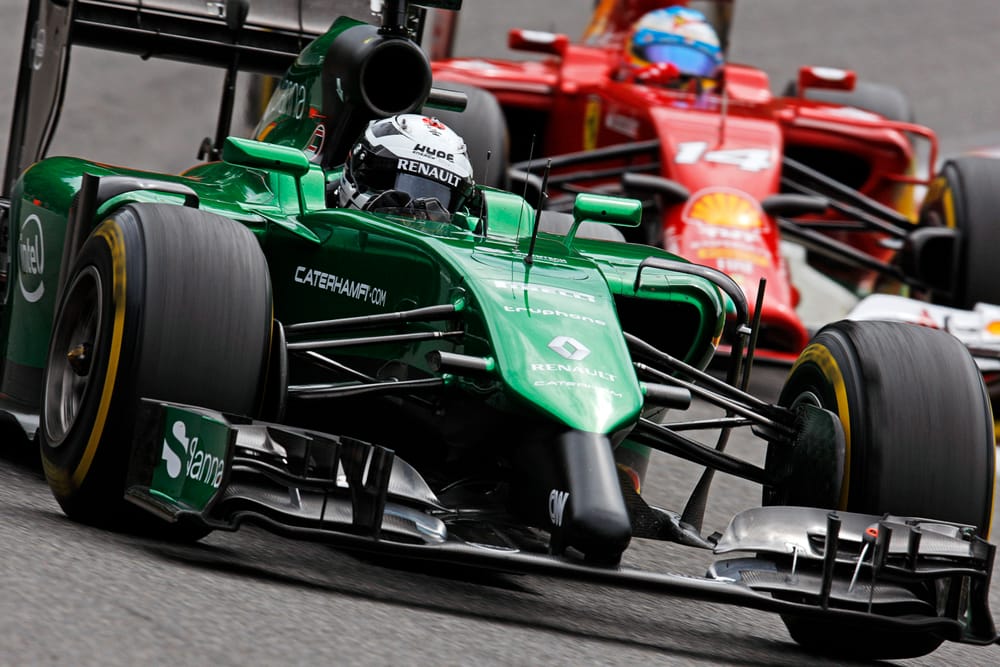Up Next

Andre Lotterer took his second World Endurance Championship title this year at the age of 43. He was then snapped up by Hyundai's new Genesis WEC programme, which will likely mean he is racing at a top level well into his mid-forties.
His career has become synonymous with endurance racing, Super Formula and Super GT success, as well as several competitive campaigns in Formula E.
So, it's easy to forget a Formula 1 'career' that straddled almost 15 years from 2000 to 2014 yet only featured one and a half laps of actual racing.
Lotterer recently joined The Race's Sam Smith to reminisce on the opportunities missed and ambitions never realised - beyond briefly being on the grid with a team in dire circumstances.
Testing tumult at Jaguar
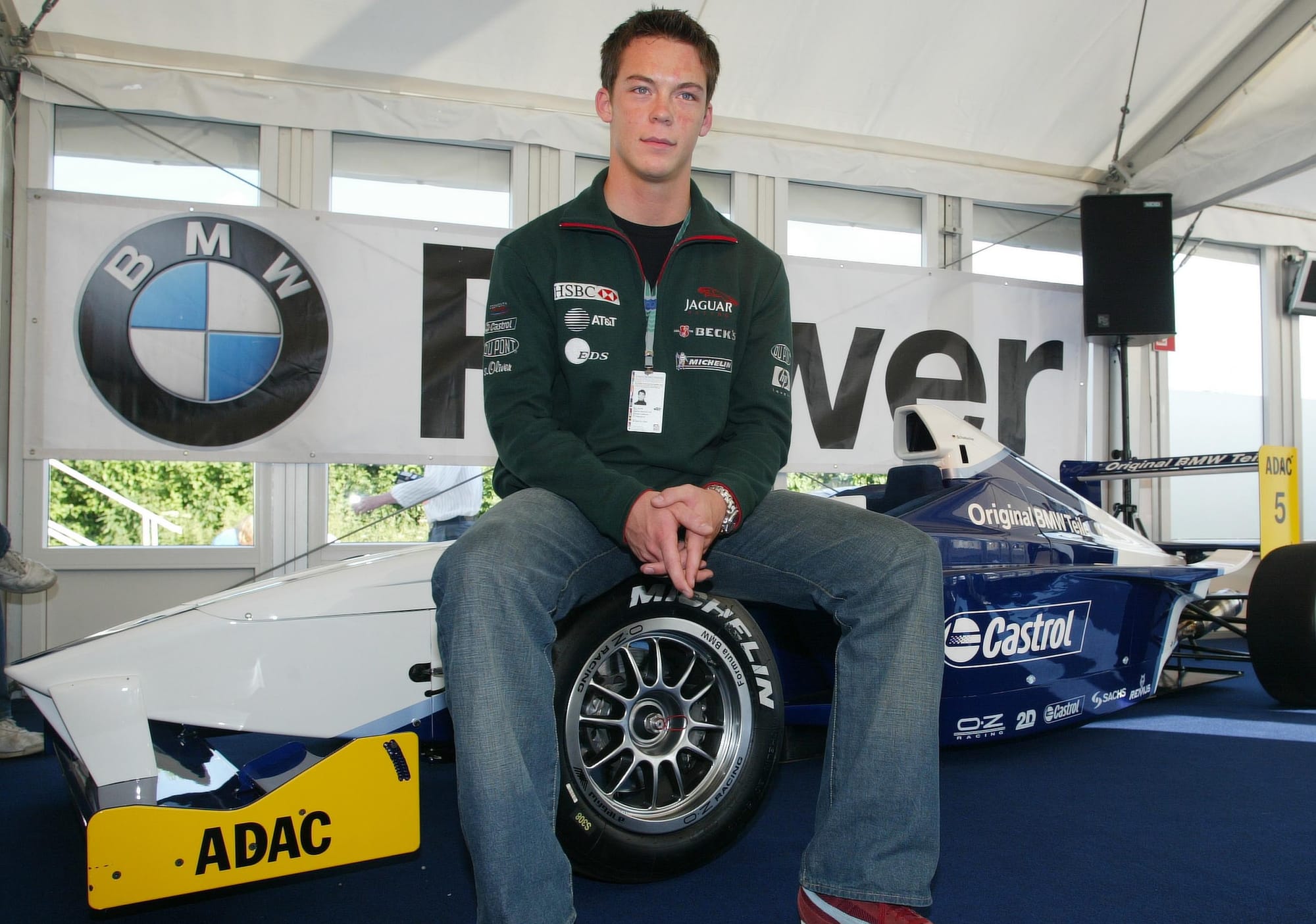
Long before he was a sportscar great, Lotterer had an impressive junior racing pedigree and seemed on a path towards F1 contention.
The gangly German/Belgian with Peruvian extraction had come from a strong karting career but struggled initially to get into cars because "we were struggling to find a budget" and "my parents didn't have anything basically and were in debt".
Werner Heinz, manager of Nick Heidfeld, Tom Kristensen and Frank Biela among others, came on board and helped the young Lotterer get into Formula BMW via multiple connections.
Lotterer didn't have much choice and a classic young driver contract ("25% of future earnings for the next 10 years", according to Lotterer) was his only real option at that stage.
That deal looked like getting him somewhere when he won the Formula BMW Junior and German titles in 1998 and 1999 respectively before heading to German Formula 3 for 2000 with the renowned Bertram Schafer team.
A good start with three wins in the first five races was tempered by a tricky mid-season period and he finished fourth as Giorgio Pantano became champion.
BMW was keen to have Lotterer for his junior career duration, and Red Bull showed interest too with Helmut Marko even giving the young Lotterer a test with his F3000 team.
But connections via Werner at Jaguar appeared to offer more of a mainline route to F1. Lotterer and James Courtney were paired in its affiliated Paul Stewart-run British F3 team and it became clear during Jaguar's tough 2000 debut season that F1 testing opportunities would be plentiful.
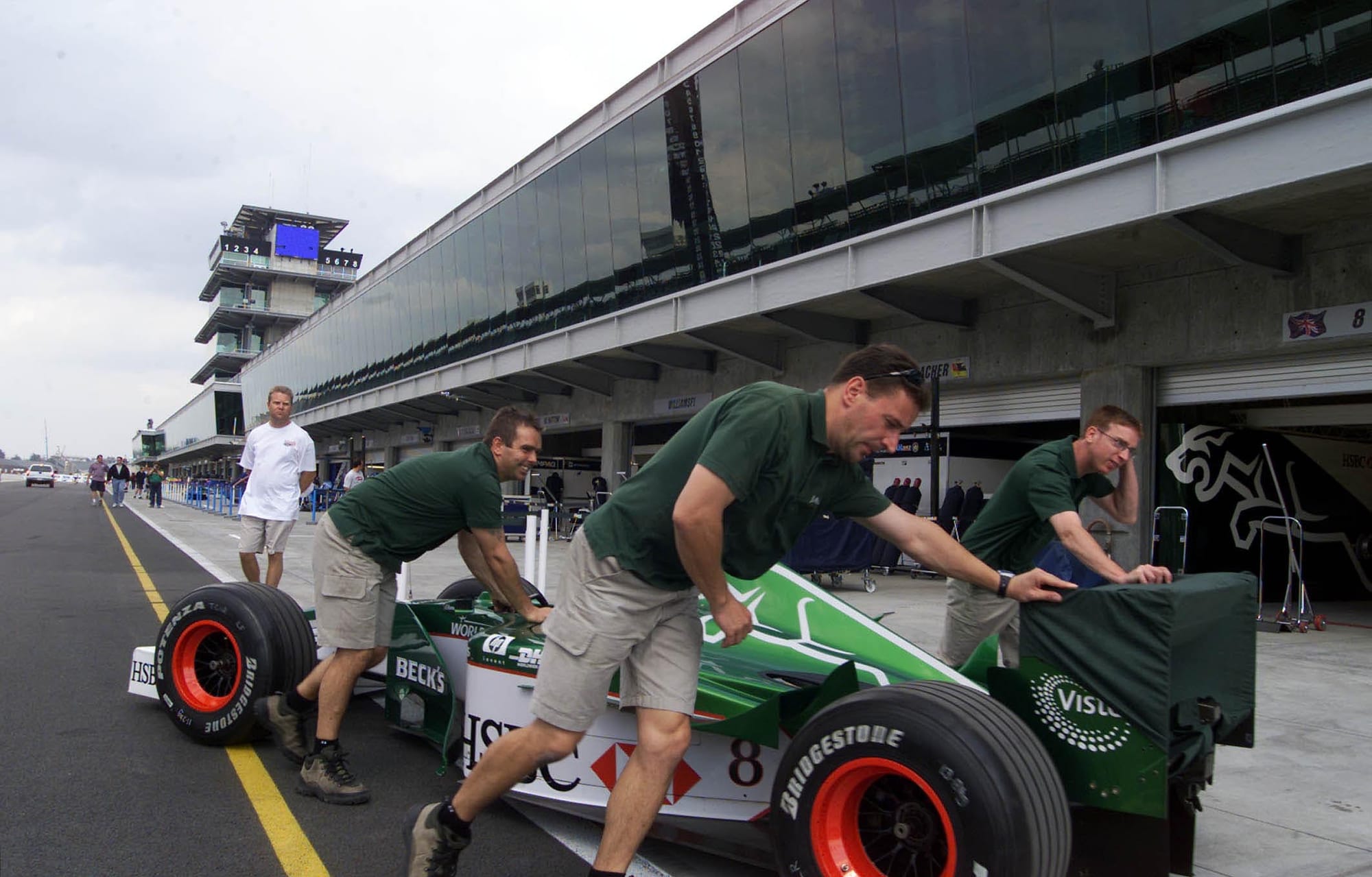
Plentiful became almost weekly when Tomas Scheckter exited as Jaguar's official test driver following a kerb-crawling incident in Milton Keynes for which he was fined at Northampton magistrates court in May 2001.
"We were buddies but James and myself took over his workload I guess," Lotterer tells The Race.
"I remember being called into [then Jaguar boss] Bobby Rahal's office one morning and he said: 'Hey Andre, you're going to be doing much more in the F1 car'."
A kind of a breakthrough came in a Monza test when Lotterer stood in for an unwell Eddie Irvine and performed strongly, greatly impressing many in the team with his pace and technical feedback.
"Things were not looking bad at all," says Lotterer.
"But then the management completely changed and Niki Lauda came in and it seemed that the people who were supporting me were either gone or focusing on other things. I was just not in the right place at the right time I guess."
This all came at a similar time to what Lotterer calls a "kind of shootout" with Courtney at Monza.
"Let's say I was unlucky, but also lucky too," adds Lotterer.
"I only did like five laps in the morning as there was an issue with the differential and they didn't have the right bolts for Monza, so they flew in stronger ones, and my day was gone.
"So, James took over and in the morning, the rear suspension broke and he had this enormous crash, like really big."
Courtney took a long time to get over that shunt and with Lotterer politically out of favour, Lauda turned his attention to testing a young Renault reserve called Fernando Alonso - whose Jaguar F1 chance remains a great 'what if' that never came to fruition.
In 2002, Lotterer continued testing although there were also more menial tasks to attend to as well.
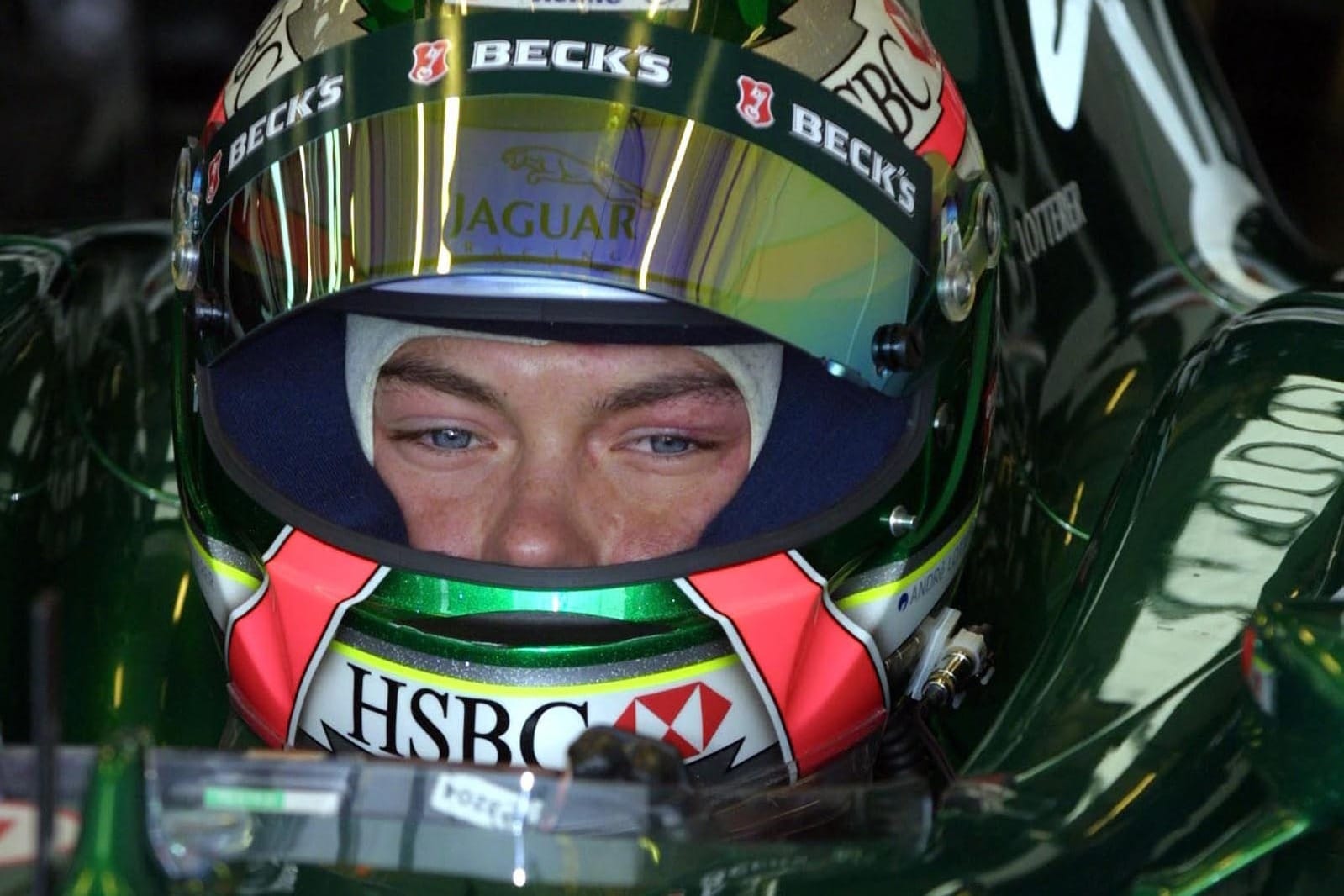
"At one race Eddie [Irvine] told me to pick him up from parc ferme at the end of a race on a scooter so I could take him to a strategic part of the track where Enrico [Zanarini, Irvine’s manager] was there in a hire car," recalls Lotterer.
"From there he'd beat the traffic and be able to get to Saint Tropez. No debrief, no goodbyes, amazing really!
"I got on with Eddie, although at first he was dismissing me as just this kid. But then after I stole a girlfriend from him he started to respect me a bit more."
It was clear going towards 2002 that Lotterer's F1 journey was coming to an end - despite a competitive campaign in a strong 2001 British F3 season where he won at Donington Park but Carlin's Takuma Sato and Anthony Davidson dominated.
"I kind of regret I didn't push more when things were good to maybe have an opportunity elsewhere," says Lotterer.
"Sauber offered me a test, but my manager cancelled it because [Felipe] Massa did really well at a previous test and he thought, 'If we go and we don't do as well as him, maybe it's bad for us'.
"In hindsight I should have gone and done it because Sauber was interested. Maybe the lesson there was I should have taken things a bit more in my own hands, rather than relying on my management.
"I guess maybe I was a bit too shy at the time to push or I thought it would work out with the people I am with, but it didn’t."
Staying on the radar
A CART IndyCar cameo at Mexico City in November 2002 was a kind of precursor to what became a career-defining move to Japan for 2003, initially with Nakajima Racing. That came about largely thanks to contacts via Enrico Zanarini, Irvine's manager.
It was a pivotal time for the young Lotterer. Although bruised by an F1 experience that led nowhere and having seen the buzz around him deplete significantly, his Japanese move at least potentially kept him on the radar given how the likes of Heinz-Harald Frentzen, Mika Salo and Irvine himself had used Japan as route to F1.
"I was still hoping when I went to Japan that with good results there I would have a shot at F1," Lotterer says.
"But back then there was a bit of a dip, where people were not really looking at all at what we were doing in Formula Nippon [now Super Formula], not like nowadays or how it was in the '90s.
"I pushed my management to do more, and I even negotiated with Nakajima that if I win the championship, I will get a test at Honda, so it was still on my radar.
"My thoughts now are maybe I was just a bit too humble about all these things and as I say I just wasn't pushy enough because I was still pretty young."
The years in Japan were fruitful. Lotterer didn't finish out of the top six for eight seasons in Formula Nippon with Nakajima and TOM'S before he finally won the title in 2011. Over his 15 seasons, he won 23 races.
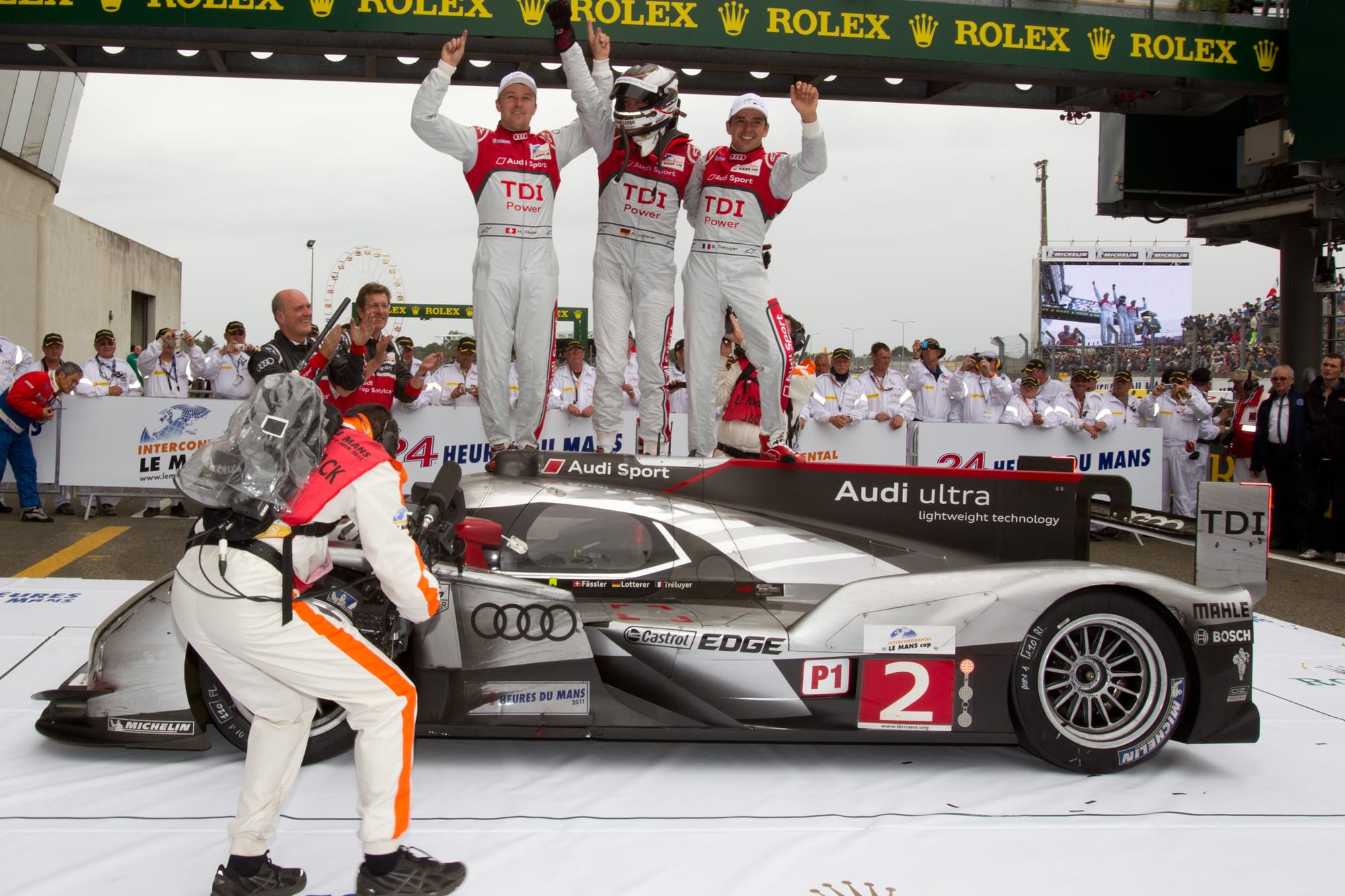
All that came on top of a brace of Super GT titles in 2006 and 2009 as well and the European sportscar racing career that began with Audi and made him a Le Mans 24 Hours legend.
From a slightly meek contender to decorated and respected professional, Lotterer blossomed, albeit away from the eyes of F1. Until that is, a connection via his introduction to endurance racing in 2009 came good four years later amid the death throes of one of F1's walking wounded teams.
The Caterham cameo
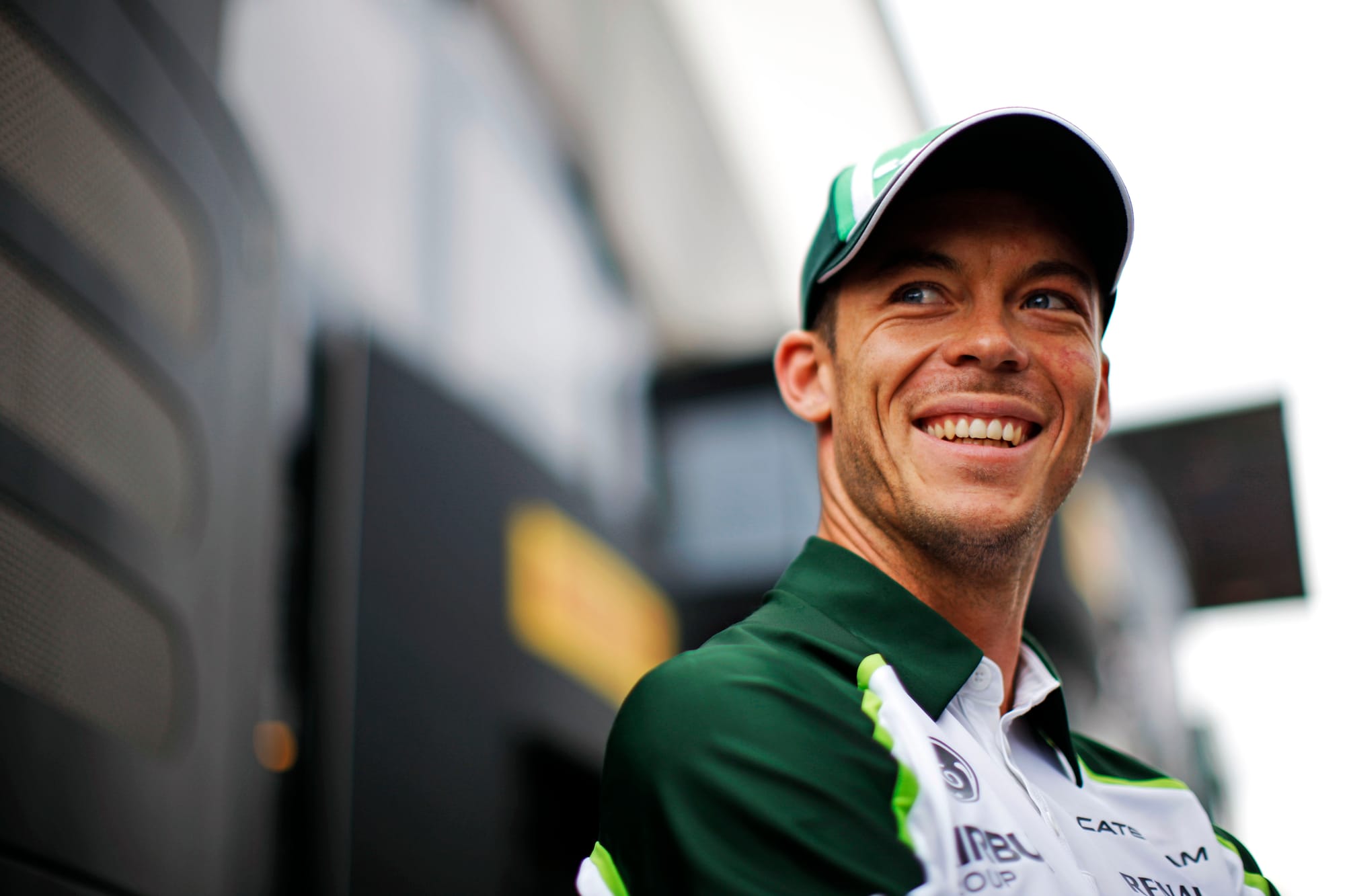
In August 2014, this writer was at a PR event at Misano with Audi to cover off Harry Tincknell's first ever test in an LMP1 machine, the Audi R18 e-tron quattro that brought Lotterer, along with team-mates Marcel Fassler and Beniot Treluyer, their third Le Mans 24 Hours victory.
At dinner that evening, which was the Tuesday before F1's Belgian Grand Prix, Lotterer's engineer Lena Gade took a message from him. He was about to make his grand prix debut, 14 years after first stepping into an F1 car.
The delight from the Audi team members was tangible and Gade even made a pilgrimage to Spa with others fully committed to supporting her driver.
It seemed barely credible that Lotterer could be on the F1 grid but he was, thanks in large part to the recommendation of his first endurance racing boss Colin Kolles, who by 2014 was in charge at Caterham.
"We established a relationship with our Le Mans story in 2009 and we kind of stayed friends and he followed what I was doing in Japan," says Lotterer.
"He took the control of the Caterham team and completely out of the blue he called me up to do the Spa race because he said he wanted someone who can maybe bring the team forward a bit."
That was needed because frankly it was totally lost with the Caterham CT04 - one of modern F1's true ugly ducklings with a curious platypus nose. The car was configured around a Red Bull gearbox and the first Renault hybrid engine.
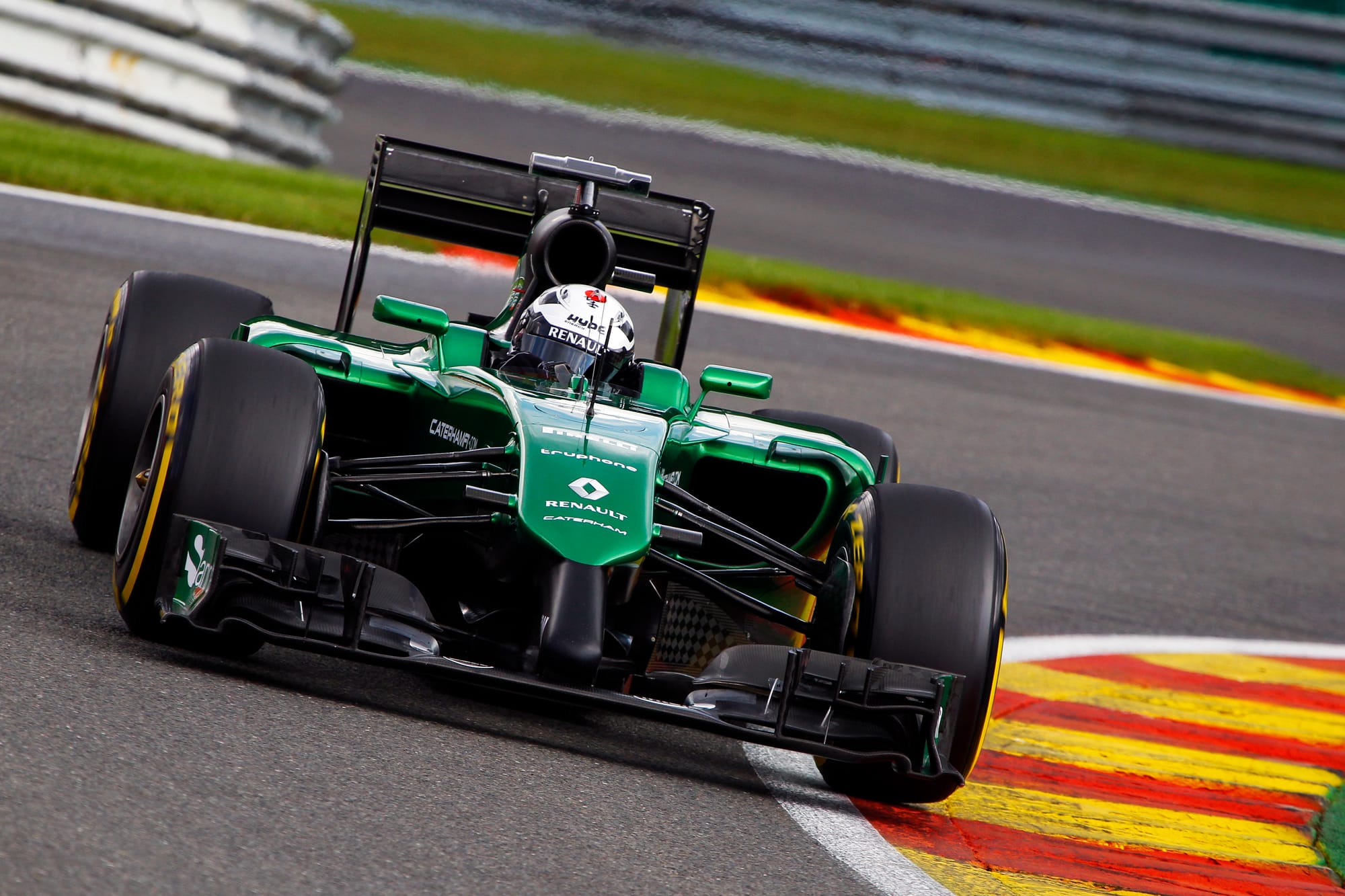
Caterham, on limited commercial and thus personnel resources, sank almost without trace and by mid-season was essentially on life support with Kolles in charge after a raft of departures including technical director Mark Smith and initial team principal Cyril Abiteboul.
Lotterer found a team at Spa that was struggling to function but surviving largely thanks to Kolles's famed frugal approach to running a ship and a patchwork technical team that was spearheaded by experienced aerodynamicist John IIey.
Lotterer had a single simulator session on the Tuesday before the race to ready himself, so was always going to be on the back foot deputising for regular driver Kamui Kobayashi.
"I didn't think it was going to be a big deal, but when I entered the paddock and I saw at the press conference how packed it was and the interest in me was it was also nice, because I'm kind of Belgian at heart, growing up there since I was one year old," says Lotterer.
"Although I'm German by nationality, I feel Belgian too. I used to play at Spa in the paddock all the time through my dad's racing team in the '80s and early '90s since I was a kid, and also my old karting tuner was there, so it was such a nice thing to be in F1 for the weekend at a track."
While he was revelling in being on the F1 grid, the reality was harsher as the cool and damp conditions made the early learning experiences challenging to say the least.
"I wasn't too familiar with all the software systems and everything, and I had to do a few settings in the wet, and then just got lost somehow with those settings," recalls Lotterer.
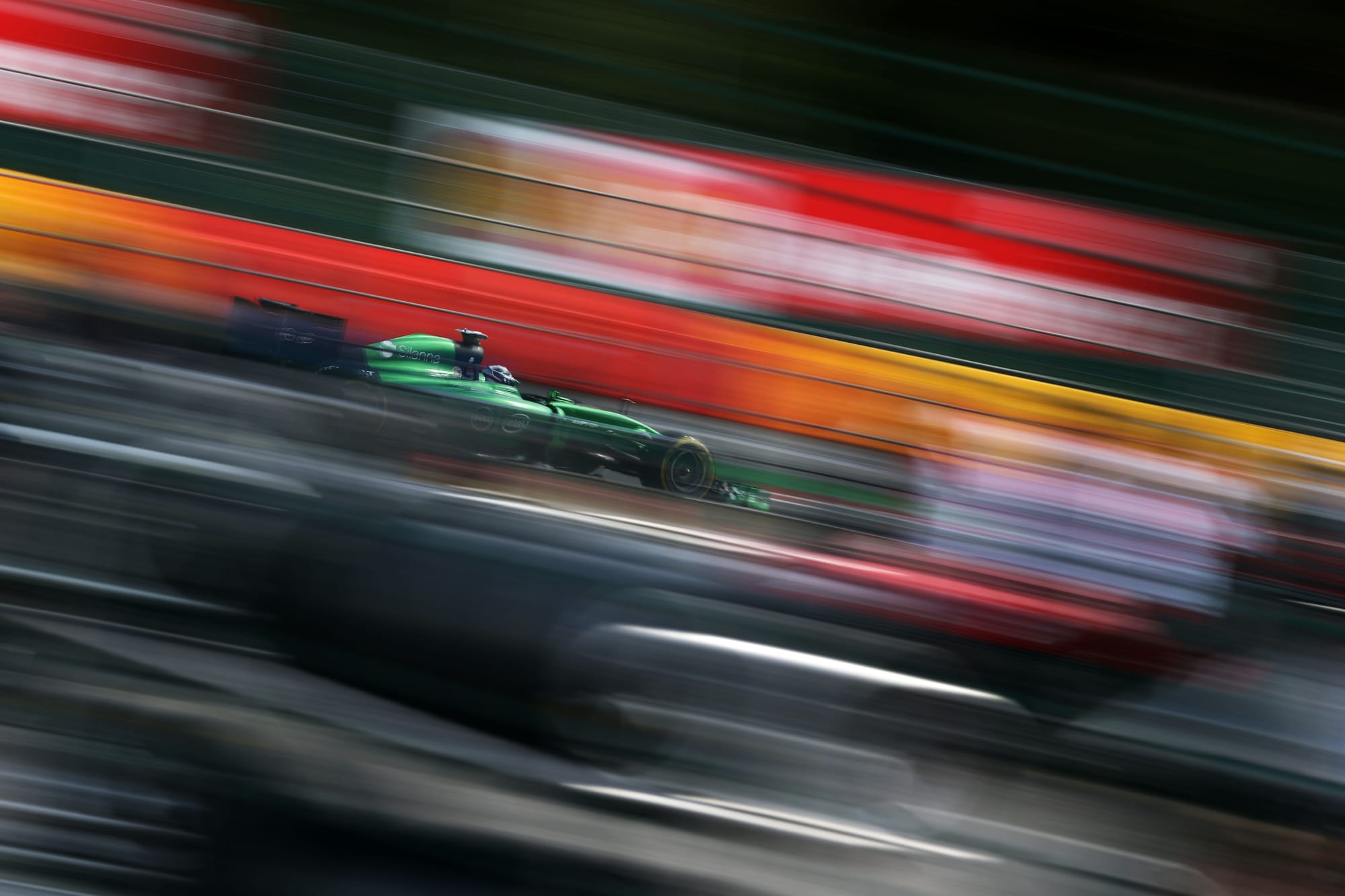
"I made a few mistakes and learning the car in the wet was tough. Then somehow I managed to reset and find a good brake balance and that was when I put one or two laps together, but for sure, there was a bit more in there from me."
Despite a true in-at-the-deep-end vibe Lotterer outqualified team-mate Marcus Ericsson by almost a second in a wet qualifying session that rewarded an element of bravery - though they shared the back row.
But the startling takeaway for Lotterer was the underwhelming performance of the F1 car compared to the regular LMP1 and Super Formula cars he was driving week in and week out.
"Honestly, the braking was a bit of a joke," he recalls.
"I kept overshooting at La Source and I was shouting in my helmet, 'This thing doesn't stop'. It was the first year of the hybrids and those things were heavy and obviously the Caterham wasn't a great car at all so really I turned down my expectations.
"The Super Formula cars were quick back then with those rules and my best lap time in practice at Spa was I think slower than in the LMP1 Audi.
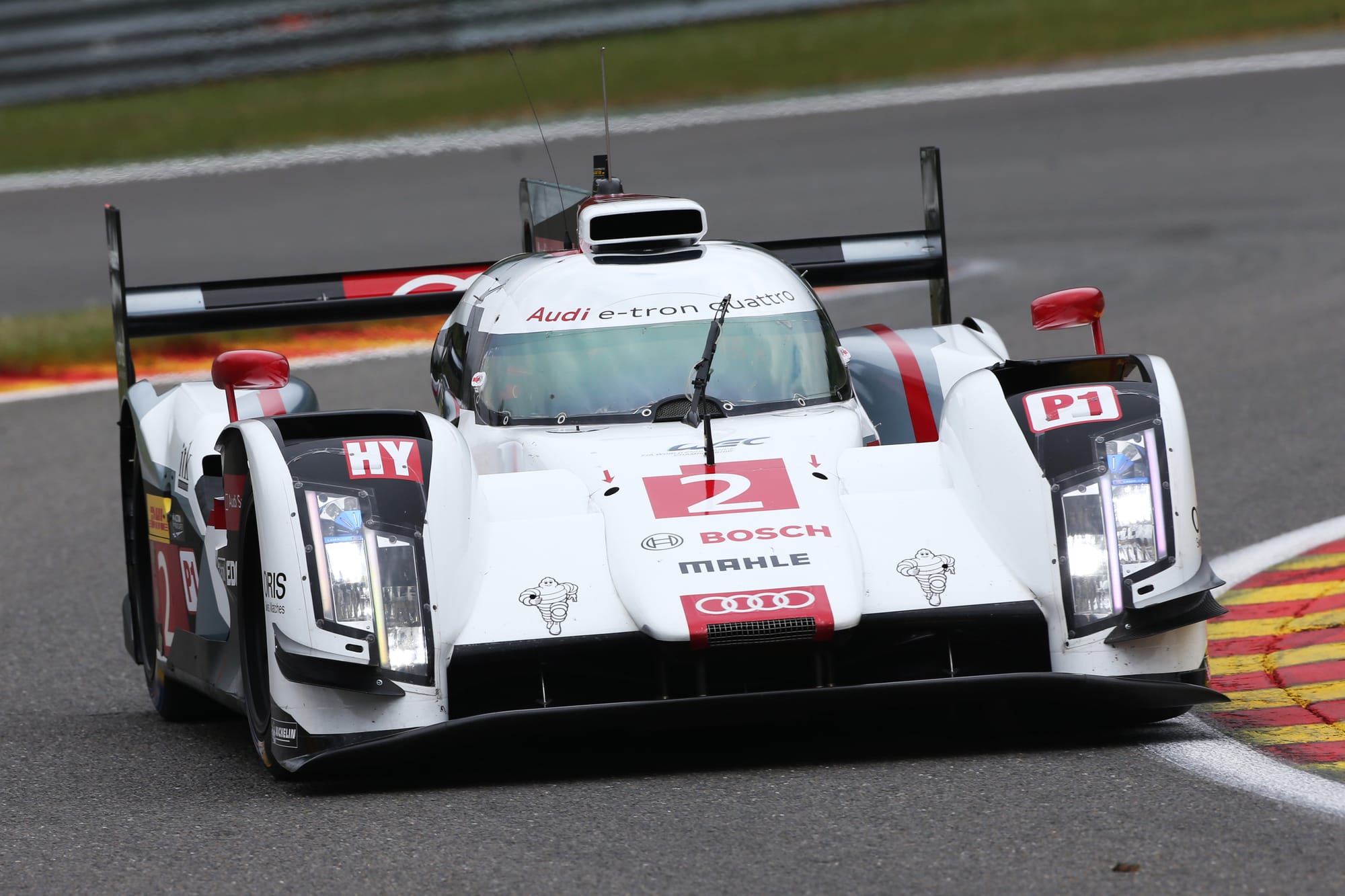
"So yeah, I was a bit disappointed with the performance of the F1 car really."
While qualifying was positive in the sense he was ahead of Ericsson, his natural reference point, the race was a different matter entirely and Lotterer's actual grand prix experience was curtailed after around seven miles. His big entourage of friends, family and Audi colleagues only saw him come around once in the race itself!
"I went over the exit kerb a bit at Blanchimont on lap two and some fuse popped out and that was it," says Lotterer.
While that was disappointing, Lotterer took it in his famed philosophical stride. When he sat down later and analysed it he realised his mini F1 adventure was actually a bonus, and it was one with a nice emotional twist too.
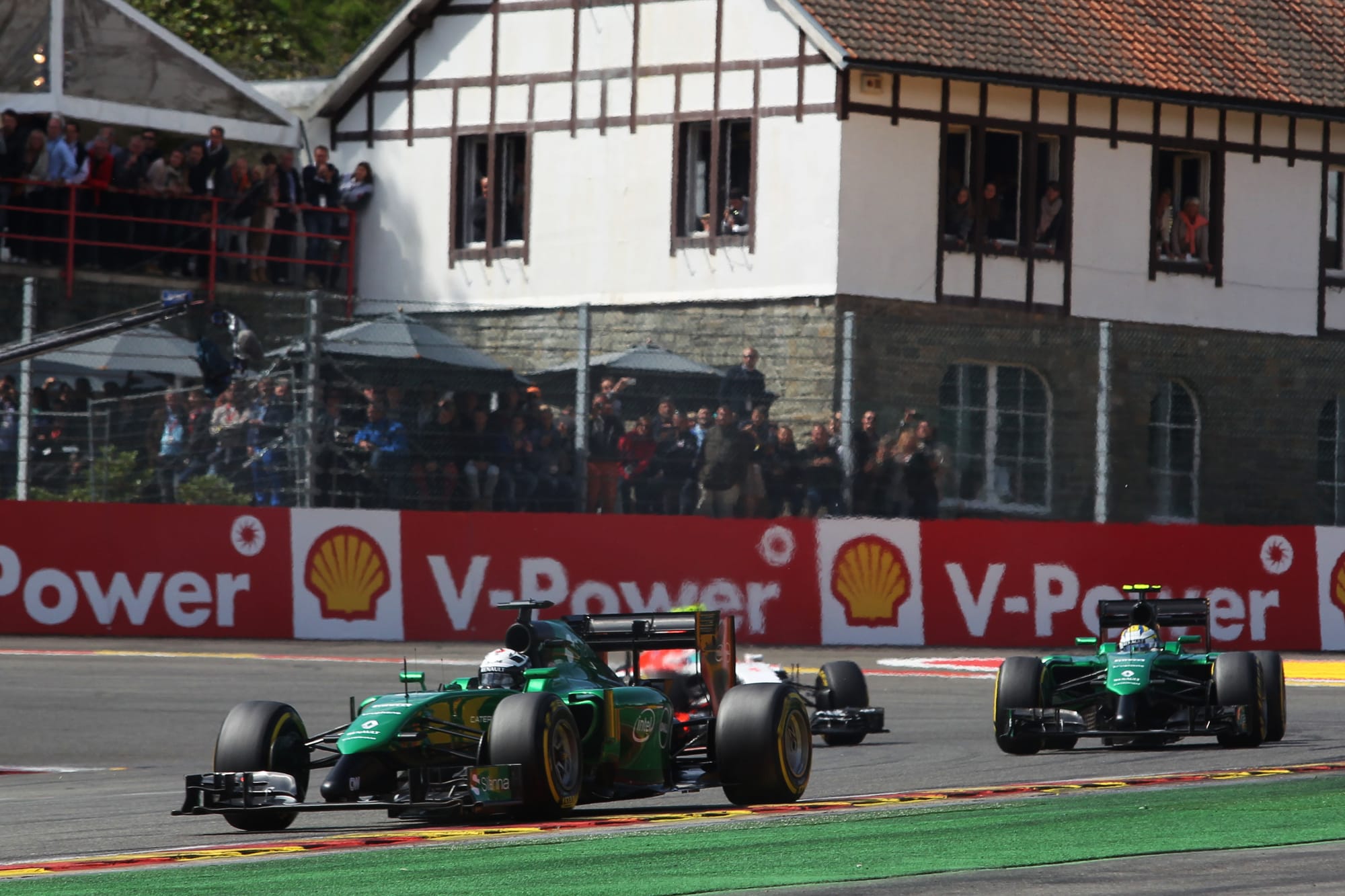
"When my dad [Henri] said, 'Let's start karting' when I was seven he sat me down and explained the commitment needed," Lotterer remembers.
"'If you do this, we go from here to Formula 1 and you don't start playing soccer or tennis or anything. This costs money, so we do it seriously'.
"I ticked that box for my Dad too at Spa."
Henri Lotterer, who ran the RAS Sport touring car operation in the 1980s and early 1990s, died in 2009. He did so knowing that his son was a paid professional in Japan and a champion. So, although his F1 one-off at Spa, a track they spent so much time together at, was so brief, it was a nice squaring the circle moment for the Lotterer family.
He could have got a second race in at the season finale in Abu Dhabi but Lotterer wasn't interested. There were bigger things on his horizon such as a new-model Audi for trying to win a fourth Le Mans with and a second WEC title in 2015 plus another dual Super Formula and Super GT campaign to undertake.
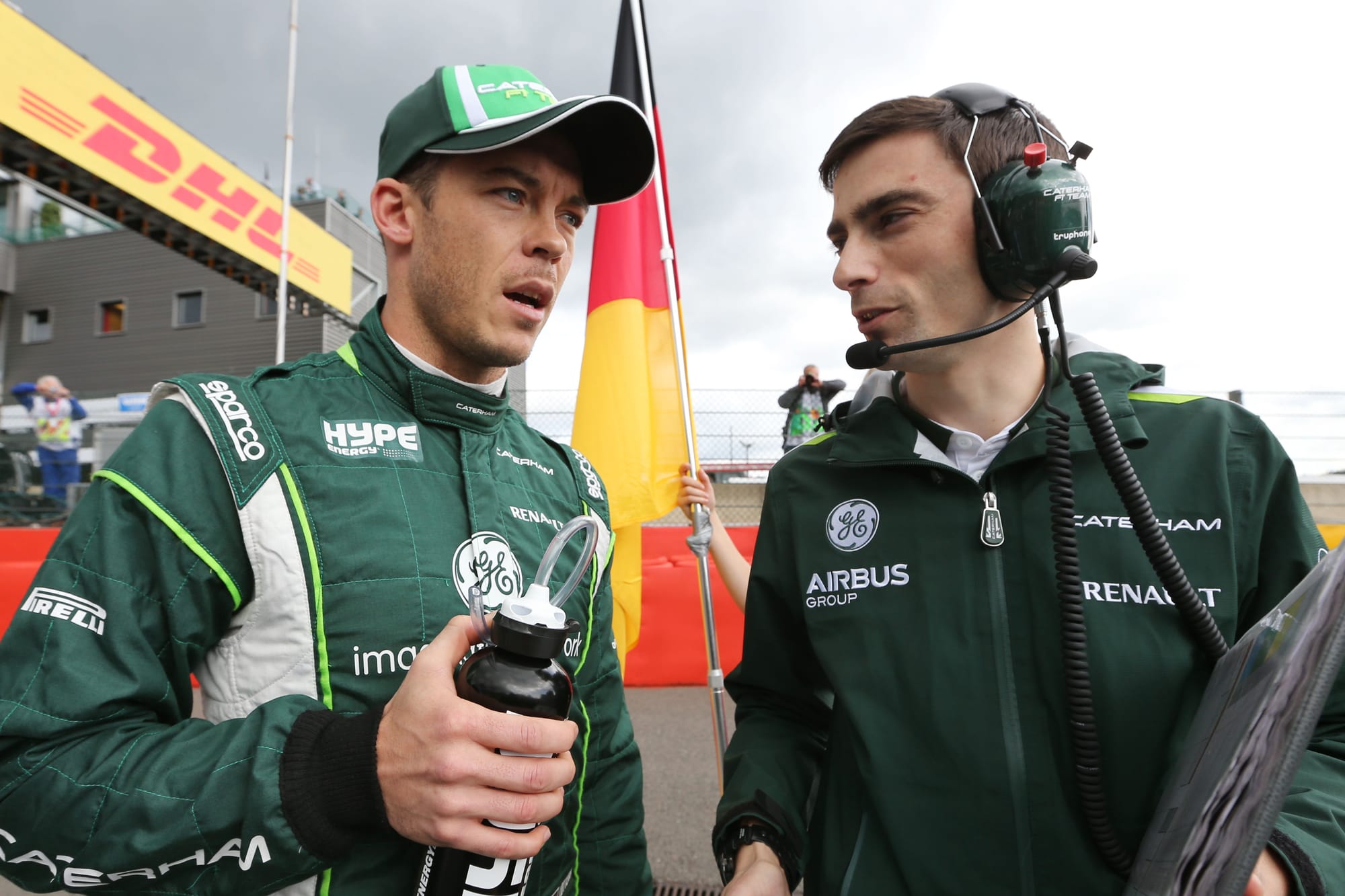
F1 had long since become nothing other than an occasional thought for Andre Lotterer, and after almost 15 years he'd scratched a satisfying itch to add to his incredible career.
"I don't have any regrets," concludes Lotterer.
"It was cool to be an F1 driver for the weekend. I didn't put any pressure on myself because at that point, compared to when I was like, whatever 20 or 21 I felt quite a bit more established in my career, winning Le Mans three times.
"I just went and enjoyed it and I'm glad I did, even if it was just for a lap and a half."


